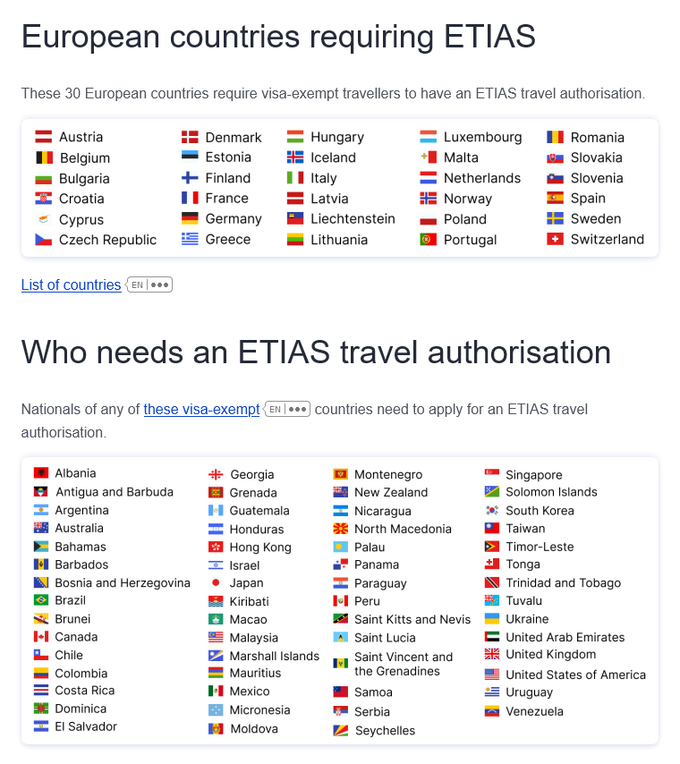ETIAS Visa-Waiver Scheme and Biometric Identification of British passport holders entering the Schengen Area 2024/2025
Update May 2024: EES From Autumn 2024 tourists aged 12 and over with British passports will no longer have their passports stamped on arrival and departure from the Schengen area as a means of checking whether they have exceeded their 90 out of 180 day stay allowance. Instead all travellers will be required to link biometric photo and fingerprint data to their specific passport number and personal details so the Entry and Exit System (EES) can carry out overstay checks electronically.
The biometric data gathered will remain valid for 3 years from the *last trip* taken to Europe's Schengen Area and for the lifetime of the passport so travellers may only need to provide biometric data once a decade if using a newly-issued passport and they travel to the Schengen Area at least once every 3 years.
If your British passport is nearing its expiry date, consider renewing it early to avoid having to undergo biometric data registration all over again when a new passport is issued. British citizens can choose to renew *at any time* during the 10 year validity. Bear in mind if you lose or renew your passport you will need to undergo biometric registration again to travel to Schengen area as your data is linked to a specific passport number
Data collection kiosks able to process 60 cars simultaneously are now installed at the Calais Eurotunnel terminal. Unconfirmed reports are saying the EES is expected to come into force at ports and airports in October or November 2024 after the Paris Paralympics.
It has not yet been announced whether travellers can have their biometric data registered this summer prior to EES coming into operation but it would certainly reduce queues at ports if permitted. If not, plan a weekend trip to Le Touquet (Le Belvédère of course!) in the off season to avoid the biometric rush at busier holiday times
The ETIAS visa-waiver scheme (see below for details) is expected to be introduced 6 months after the EES system comes into operation
The biometric data gathered will remain valid for 3 years from the *last trip* taken to Europe's Schengen Area and for the lifetime of the passport so travellers may only need to provide biometric data once a decade if using a newly-issued passport and they travel to the Schengen Area at least once every 3 years.
If your British passport is nearing its expiry date, consider renewing it early to avoid having to undergo biometric data registration all over again when a new passport is issued. British citizens can choose to renew *at any time* during the 10 year validity. Bear in mind if you lose or renew your passport you will need to undergo biometric registration again to travel to Schengen area as your data is linked to a specific passport number
Data collection kiosks able to process 60 cars simultaneously are now installed at the Calais Eurotunnel terminal. Unconfirmed reports are saying the EES is expected to come into force at ports and airports in October or November 2024 after the Paris Paralympics.
It has not yet been announced whether travellers can have their biometric data registered this summer prior to EES coming into operation but it would certainly reduce queues at ports if permitted. If not, plan a weekend trip to Le Touquet (Le Belvédère of course!) in the off season to avoid the biometric rush at busier holiday times
The ETIAS visa-waiver scheme (see below for details) is expected to be introduced 6 months after the EES system comes into operation
Update: 17 June 2023: Owing to delays by the EU large-scale IT system agency (LISA) in the rolling out of the Entry/Exit System the planned EES will not become effective in May 2023 as previously planned. A new date for its full launch will become known soon, but it is understood France would like it delayed until after the 2024 Paris Olympics.
https://commonslibrary.parliament.uk/the-eu-entry-exit-system-and-eu-travel-authorisation-system/
https://commonslibrary.parliament.uk/the-eu-entry-exit-system-and-eu-travel-authorisation-system/


